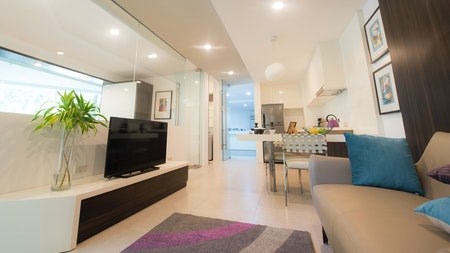

Private Property Reporter | Jan 15, 2021
South Africa’s property industry has been steadily navigating through uncertain times with fluctuating market conditions which are largely being determined by the prevalence rate of Covid-19. Households in particular are being cautious when it comes to expenditure and property acquisition as well as business/career decisions bearing in mind the fact that the prevalence rate of Covid-19 will determine the wellbeing of the business market.
It is therefore not surprising that the property market has witnessed unprecedent numbers of rental and home acquisitions.
According to Letsmoove Real Estate, the number of vacant rental properties in SA has increased by 50% since the start of the 2020, as the coronavirus crisis wreaks havoc on household incomes. Across the market, 11% of properties are now standing empty. And only 60% of tenants of pricier properties are paying rent on time.
Information gathered on the other hand from Ooba who are regarded as South Africa's Leading Home Loan Experts shows that first-time buyers are streaming into the market, accounting for 54% of Ooba’s mortgage bond applications processed in the third quarter of 2020, a 10% increase compared to the third quarter of 2019.
For many people, the decision to purchase is being made after renting a property for a period of time.
How do you rent to own property in South Africa?
Renting to own is a legally allowed lease arrangement where a tenant decides to occupy a property with the intention of acquiring it at a later stage or end of the lease period of time. This is normally done with additional payments.
Types of lease agreements involved
The lease contracts entered into in this regard are lease option and lease purchase. The difference between the two options is that lease option grants you the flexibility of refusing to buy at the end of the lease agreement. In short you are under no obligation to buy. Lease purchase on the other hand puts you under obligation to buy as agreed initially.
Advantages
• Rent to buy provides enough room for someone to organise enough finances which they can use for home purchase deposit and legal fees involved
• For those with bad credit records, rent to buy allows you to rent while you clear your bad credit record
• The purchase price of the property is normally fixed at the start of the contract. This means the seller cannot overprice the property should market conditions change
Things to consider before entering into rent to buy arrangement?
• There is always the risk of losing money should the seller choose not to sell the property
• You need to consider your medium- and long-term financial position. If your financial is bound to significantly improve to enable you make deposits or afford an outright purchase, you need reconsider rent to buy
• Should you find a better home and neighbourhood, it will be difficult to change your mind because you are already tied to a contract
• You don’t really own the property. You are therefore limited when it comes to making additions or renovating the property
• Should property prices fall, you are likely to buy a property at a relatively higher price than the prevailing market conditions
• Late payments may cause you to lose your right to buy. This could mean losing amount you’ve accumulated for eventual purchase
• For the property owner, you need to pay particular attention to tax obligations to avoid any legal challenges. You can also consider relevant property insurance just in case the property gets badly damaged before its finally sold or if you decide not to sell
From the above, it’s clear to see that this is a worthy option to consider for prospective home buyers.